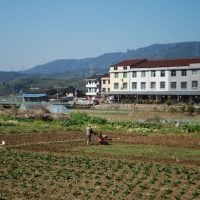Deadline: 21 July 2018
The European Union (EU) is seeking proposals to Support to the Local Health Sector in Tunisia.
The overall objective of this call for proposals is to strengthen the capacity of civil society to work as a constructive and effective partner in the implementation of public services aimed at the prevention, promotion or improvement of the health of the population in Tunisia.
The specific objective of this call for proposals is to promote the participation of local civil society in community mobilization and the implementation of awareness-raising, prevention and health promotion actions in the geographical areas targeted by the “Essaha Aziza” program, as close as possible to the users, mainly at the level of the first-line services.
Focused on the population, the expected results of the call for proposals are:
- The Tunisian citizen is better informed and sensitized on the issues relating to health rights and responsibilities, risky behavior, accessibility and the provision of care and ultimately,
- Access to and use of the health system is improved for many more, especially at the front-line level.
Funding Information
Any grant application under this Call for Proposals must be between the following minimum and maximum amounts:
- minimum amount: EUR 2,000,000
- maximum amount: EUR 2,000,000
Eligibility Criteria
- Lead applicants
- To be eligible for a grant, the lead applicant must meet the following conditions:
- be a legal person; and
- be non-profit making; and
- belong to one of the following categories: non-governmental organization, local or national association, professional organization, elected local authority; and
- be established in a Member State of the European Union or in the partner country as defined in Regulation (EU) n. 232/2014 of the European Parliament and of the Council of 11 March 2014 laying down general provisions establishing a European Neighborhood Instrument (Official Journal L 77 of 15.03.2014, page 27). For United Kingdom applicants: It is appropriate to stress that the eligibility criteria must be met throughout the duration of the grant agreement. If the United Kingdom withdraws from the Union during the grant period without entering into an agreement with the Union, in particular to ensure that United Kingdom applicants continue to be eligible, applicants will cease to receive funding from the United Kingdom. Union (while continuing, if possible, to participate in the project) or will be forced to leave the project on the basis of Article 12.2 of the General Conditions of the Grant Agreement; and
- be directly responsible for the preparation and management of the action with the co-applicant (s) and the affiliated entity (ies) and not act as an intermediary and
- be able to demonstrate its ability to manage activities related to the themes concerned and corresponding to the scale of the project requiring a grant.
- The Lead Applicant must declare that neither he nor the co-applicant (s) nor the co-applicant (s) entity / affiliated entities are in one of these situations.
- The lead applicant may act either individually or with one or more co-applicants.
- To be eligible for a grant, the lead applicant must meet the following conditions:
- Co-Applicant(s)
- The co-applicants participate in the definition and implementation of the action, and the costs they incur are eligible in the same way as those incurred by the lead applicant.
- Co-applicants must meet the eligibility criteria that apply to the lead applicant itself.
- If the grant is awarded to them, the potential co-applicants will become the beneficiaries of the action together with the coordinator.
- Affiliated entity (ies)
- The lead applicant and its co-applicants may act with one or more affiliated entities.
- Only the following entities may be considered affiliated to the lead applicant and / or the co-applicant (s):
- Only those entities structurally related to the applicants (the lead applicant or a co-applicant), in particular in capital or legal terms.
- This structural link mainly covers two notions:
- control within the meaning of Directive 2013/34 / EU on annual financial statements, consolidated financial statements and related reports of certain types of undertakings:
- Entities affiliated with an applicant may therefore be:
- entities controlled directly or indirectly by the applicant (subsidiary or subsidiary of first rank) or controlled by an entity itself controlled by the applicant (sub-subsidiaries or second level subsidiaries). This is valid for other levels of control;
- entities controlling directly or indirectly by the applicant (parent company). In the same way, it may be entities controlling a company controlling the applicant;
- entities with the same level of direct or indirect control as the applicant (sister companies).
- Entities affiliated with an applicant may therefore be:
- membership, ie the applicant is legally defined as eg a network, a federation, an association to which the affiliated entity participates, or the applicant participates in the same organization (eg network, federation or association) than the proposed affiliated entity.
- control within the meaning of Directive 2013/34 / EU on annual financial statements, consolidated financial statements and related reports of certain types of undertakings:
How to Apply
In order to apply for the grants, applicants have to register themselves in PADOR, an on-line database via given website.
For more information, please visit Europeaid and download the guidelines.









































